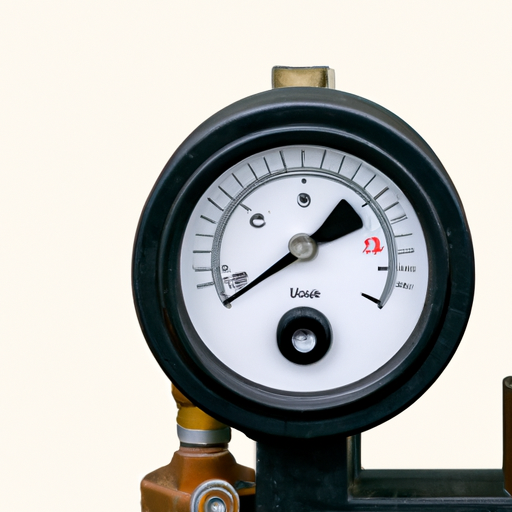Rotating potential meters, also known as rotary potentiometers or rotary variable resistors, are widely used in various electronic devices and equipment to control and adjust voltage levels. These devices are essential components in many applications, including audio equipment, lighting controls, industrial machinery, and automotive systems. Rotating potential meters come in various types and configurations to suit different requirements and specifications. In this article, we will explore some of the popular rotating potential meter product types available in the market.

2. Multi-turn Potentiometers: Multi-turn potentiometers have multiple turns of the rotating shaft, allowing for more precise adjustments of voltage levels. These potentiometers typically have a gear mechanism that translates multiple rotations of the shaft into a linear output. Multi-turn potentiometers are commonly used in applications where fine adjustments are required, such as in precision instruments and test equipment.
3. Wirewound Potentiometers: Wirewound potentiometers use a wire wound around a resistive core to provide a precise and stable resistance value. These potentiometers are known for their high accuracy and reliability, making them suitable for demanding applications where precise voltage control is essential. Wirewound potentiometers are commonly used in industrial control systems, power supplies, and instrumentation.
4. Cermet Potentiometers: Cermet potentiometers use a ceramic and metal composite material for the resistive element, providing excellent stability and reliability. These potentiometers offer high precision and long-term stability, making them ideal for applications where accuracy is critical. Cermet potentiometers are commonly used in audio equipment, medical devices, and aerospace applications.
5. Conductive Plastic Potentiometers: Conductive plastic potentiometers use a conductive plastic material for the resistive element, offering low noise and high resolution. These potentiometers are known for their smooth and precise operation, making them suitable for audio equipment, automotive controls, and consumer electronics. Conductive plastic potentiometers are available in various resistance values and power ratings to suit different applications.
6. Digital Potentiometers: Digital potentiometers, also known as digital potentiometer ICs, use digital encoding to adjust the resistance value electronically. These potentiometers offer precise and repeatable adjustments of voltage levels, making them ideal for applications where digital control is required. Digital potentiometers are commonly used in audio equipment, motor controls, and programmable logic controllers.
7. Motorized Potentiometers: Motorized potentiometers use a motor-driven mechanism to adjust the resistance value remotely. These potentiometers offer remote control and automation capabilities, making them suitable for applications where manual adjustments are not practical. Motorized potentiometers are commonly used in audio mixing consoles, robotic systems, and industrial automation.
In conclusion, rotating potential meters come in various types and configurations to suit different requirements and specifications. Whether you need a simple single-turn potentiometer for basic voltage control or a high-precision wirewound potentiometer for demanding applications, there is a wide range of rotating potential meter product types available in the market to meet your needs. It is essential to choose the right type of potentiometer based on your specific application requirements to ensure optimal performance and reliability.
Rotating potential meters, also known as rotary potentiometers or rotary variable resistors, are widely used in various electronic devices and equipment to control and adjust voltage levels. These devices are essential components in many applications, including audio equipment, lighting controls, industrial machinery, and automotive systems. Rotating potential meters come in various types and configurations to suit different requirements and specifications. In this article, we will explore some of the popular rotating potential meter product types available in the market.

2. Multi-turn Potentiometers: Multi-turn potentiometers have multiple turns of the rotating shaft, allowing for more precise adjustments of voltage levels. These potentiometers typically have a gear mechanism that translates multiple rotations of the shaft into a linear output. Multi-turn potentiometers are commonly used in applications where fine adjustments are required, such as in precision instruments and test equipment.
3. Wirewound Potentiometers: Wirewound potentiometers use a wire wound around a resistive core to provide a precise and stable resistance value. These potentiometers are known for their high accuracy and reliability, making them suitable for demanding applications where precise voltage control is essential. Wirewound potentiometers are commonly used in industrial control systems, power supplies, and instrumentation.
4. Cermet Potentiometers: Cermet potentiometers use a ceramic and metal composite material for the resistive element, providing excellent stability and reliability. These potentiometers offer high precision and long-term stability, making them ideal for applications where accuracy is critical. Cermet potentiometers are commonly used in audio equipment, medical devices, and aerospace applications.
5. Conductive Plastic Potentiometers: Conductive plastic potentiometers use a conductive plastic material for the resistive element, offering low noise and high resolution. These potentiometers are known for their smooth and precise operation, making them suitable for audio equipment, automotive controls, and consumer electronics. Conductive plastic potentiometers are available in various resistance values and power ratings to suit different applications.
6. Digital Potentiometers: Digital potentiometers, also known as digital potentiometer ICs, use digital encoding to adjust the resistance value electronically. These potentiometers offer precise and repeatable adjustments of voltage levels, making them ideal for applications where digital control is required. Digital potentiometers are commonly used in audio equipment, motor controls, and programmable logic controllers.
7. Motorized Potentiometers: Motorized potentiometers use a motor-driven mechanism to adjust the resistance value remotely. These potentiometers offer remote control and automation capabilities, making them suitable for applications where manual adjustments are not practical. Motorized potentiometers are commonly used in audio mixing consoles, robotic systems, and industrial automation.
In conclusion, rotating potential meters come in various types and configurations to suit different requirements and specifications. Whether you need a simple single-turn potentiometer for basic voltage control or a high-precision wirewound potentiometer for demanding applications, there is a wide range of rotating potential meter product types available in the market to meet your needs. It is essential to choose the right type of potentiometer based on your specific application requirements to ensure optimal performance and reliability.